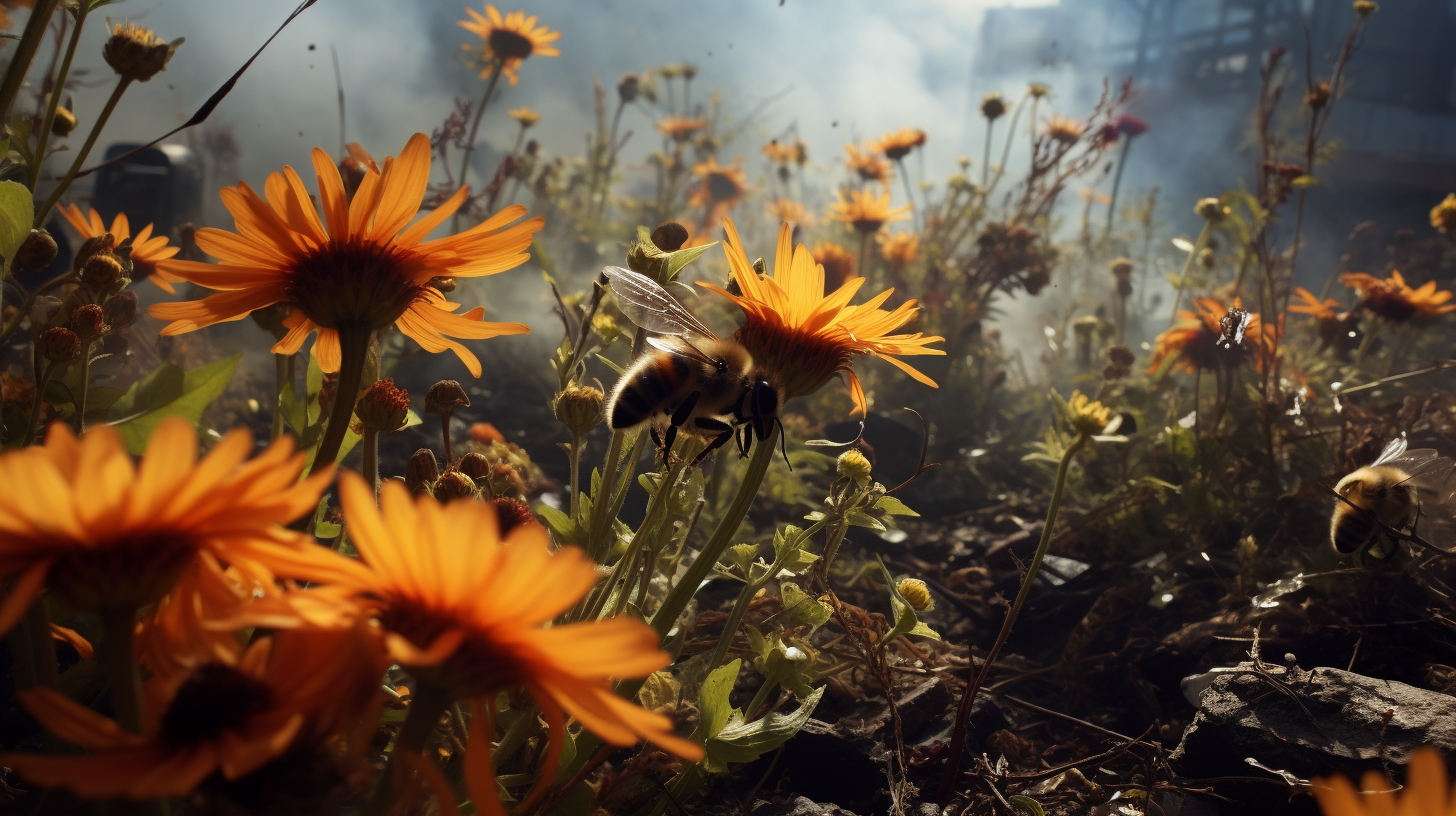The Genesis of a Dire Botanical Epoch
In the eerie stillness of our once-buzzing meadows, amid the swaying of ghostly empty fields that flourish only in our memories, a bizarre botanical era unfurls. Within this dystopian fresco, the floral kingdoms rise tentatively, unfolding petals in a world barren of the traditional heralds of pollination. The bees, as we knew, are no more—victims of our own environmental follies. And in their absence, we are left to wonder: what flora can possibly claim dominion in such a bereft reality?
Mirage of Mutations
Amidst the desolation, evolutionary innovation has commandeered. Certain plants have shrugged off the need for bees, evolving audacious new mechanisms of survival. Some boast flowers that ripple in the wind, casting seeds like desperate wishes into the uncaring void. Others have turned to mimicry, their blooms grotesque caricatures of erstwhile pollinators, hoping to entice the few remaining insects into their service. Yet, it is a gamble with evolution that offers no promise of continued existence.
The Rise of Self-Reliant Species
Despite the dire circumstances, some botanical species showcase an astonishing capacity for resilience. Among the despondent landscapes, self-pollinating plants are ascendant, no longer hidden understudies but now leading players. They are the pioneers in this new world—a world where the breeze and the rain are the inadvertent couriers of life.
Technological Interventions: A Futile Gestation?
The void left by bees has prompted human ingenuity to attempt to fill it. Robotic pollinators buzz in a mockery of the life that once was, their sterile dances lacking the chaotic beauty of natural pollination. These mechanical interlopers may enable the continuation of some species, but they bring forth none of the synergy that was born from millions of years of co-evolution between flora and fauna.
The Pernicious Weeds of Progress
In the absence of their delicate competitors, robust weeds erupt through cracks in a civilization’s failing skin. These hardy survivors thrive unchallenged, forming an oppressive monoculture across vast swathes of land. Here lies nature’s irony: in our efforts to control and contain, it is these unbidden growths that may inherit the earth, potentially stifling the emergence of new, diverse botanical life.
Concluding the Chronicle of Chlorophyll
So, are we witnessing a rebirth or ruin of our world’s botanical realms? The panorama is bleak—where there was once a symphony of ecological interactions, now there is a disjointed cacophony of struggling life forms. We must now bear quiet witness to this grim march of flora—a testament to what once was and a chilling prelude of what may yet come to pass.
